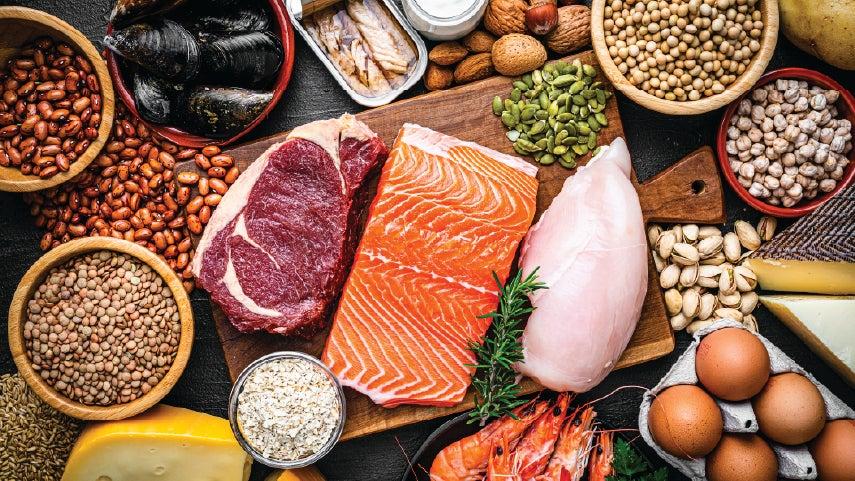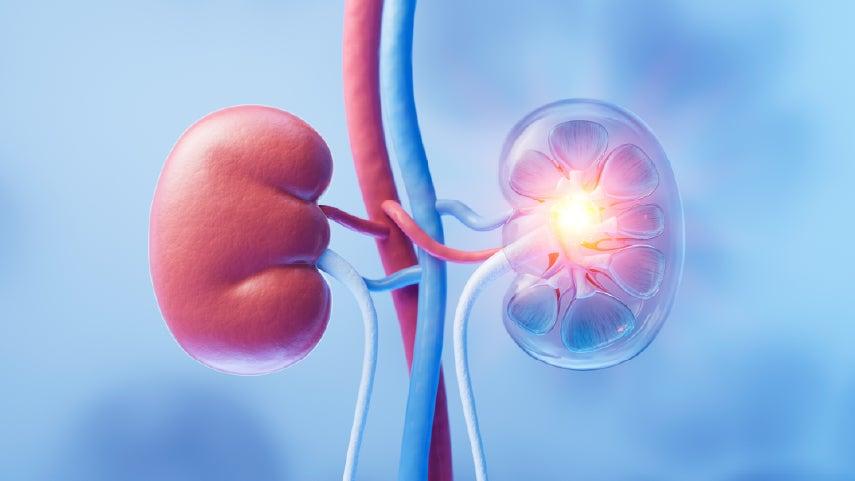
Related Topics
As obesity is increasingly recognized as a serious health issue, life-changing treatments are emerging to help adults achieve a healthy weight and reduce their health risks. These options include new bariatric surgery approaches as well as safe and effective anti-obesity medications (AOMs).
Why is a wider array of treatments so critical? Roughly 40.3% of American adults are living with obesity. The rate of severe obesity among adults in the U.S. is 9.4%.1 According to the Centers for Disease Control and Prevention (CDC), extra weight can increase one’s risk for heart disease, stroke, type 2 diabetes, and certain types of cancer. People with obesity are also at greater risk of complications and severe illness from COVID.
We’re all individuals, and there’s no one-size-fits-all solution for addressing obesity. But no matter which path you take to manage your weight, living a healthy lifestyle is important for all of us. One positive lifestyle change you can make right now is to focus on healthy eating.
How does nutrition affect obesity?
There’s plenty of truth to the old saying: “You are what you eat.” Research has long shown that the foods we consume every day have a major impact on our health and wellness. Eating a balanced, nutrient-dense diet is vital across the lifespan, helping us feel our best and reduce our risk of chronic diseases.
Since 1980, the Dietary Guidelines for Americans have provided science-based advice on what we should eat and drink to meet our daily nutrient needs. These recommendations inform the government’s feeding programs, such as the Supplemental Nutrition Assistance Program (SNAP) and Congregate Nutrition Services, often available at senior centers and other community-based organizations.
The U.S. Departments of Agriculture and Health and Human Services released the Dietary Guidelines for Americans 2020-2025. For the first time, these guidelines focus on nutrition for healthy living at every stage—from infancy through older adulthood, or adults age 60 and older.
What are the nutritional guidelines for seniors?
Older adults have special health considerations. According to the Dietary Guidelines, they have a greater risk of developing chronic diseases and are also vulnerable to age-related conditions like osteoporosis. Complicating matters is that a growing number of older Americans are starting this stage of their life already carrying excess body weight.
Following the Dietary Guidelines can help you shed pounds and prevent additional weight gain.
How do older adults need to eat to stay healthy?
- Pay attention to calories. Your personal energy needs will vary according to your age, sex, height, weight, and activity level. To find out more, check out MyPlate Plan.
- Include more fruit, vegetables, whole grains, and low-fat or fat-free dairy in your diet. These food groups are great sources of nutrients you need, such as dietary fiber, potassium, calcium and vitamin D.
- Limit your consumption of added sugars, saturated fat, and sodium. Flavoring foods with herbs and spices can help you lower your intake of sugars, salt, and saturated fats.
- Consume adequate protein to help prevent the loss of lean muscle mass. Nutritious protein sources include seafood; low-fat and non-fat dairy products (including fortified soy alternatives); and beans, peas, and lentils.
- Boost your vitamin B12 levels by eating B12-fortified foods, such as breakfast cereals. Your doctor may advise you to take a supplement. Other foods with high levels of B12 include sardines and tuna.
- Drink plenty of water to prevent dehydration. Other good beverage choices include unsweetened fruit or low sodium vegetable juice, low-fat (or fat-free) milk, or fortified soy beverages. Fluids can also be obtained from foods containing water, such as soup and fruits and vegetables.
- Limit your intake of alcoholic drinks to no more than two per day if you’re a man and no more than one per day if you’re a woman.
It’s important to eat foods that fit your personal taste preference, culture, family traditions, budget, and medical conditions. If you’re busy, you can explore meal delivery services or grocery delivery services to get nutritious meals and ingredients delivered right to your door. Sharing meals with friends and family can help you eat better and enjoy your food more.
“Keep in mind that you can always work with a registered dietitian nutritionist to help you create a healthy eating plan that’s tailored your lifestyle and health goals,” says Gretchen Tanbonliong, Associate Director for Health and Wellness and a registered dietitian nutritionist herself.
Learning to eat smart for a healthy lifestyle
The Academy of Nutrition and Dietetics provides some helpful tips for developing healthy eating habits that can be used along with Dietary Guidelines recommendations. These include:
- Avoid distractions while you’re eating (e.g. TV or cell phone).
- Slow down and take the time to enjoy your food.
- Learn how to read Nutrition Facts labels on food packaging.
- Plan healthy eating while traveling and dining out.
- Don’t be afraid to try new foods and flavors.
Reversing obesity in America won’t happen overnight, and there are a variety of treatment interventions that may be explored. But no matter what path you take, good nutrition should always be an integral part of your journey. As emphasized in the new Dietary Guidelines, “it is never too early or too late to eat healthfully.”
Source
1. Centers for Disease Control and Prevention. Adult Obesity Facts. Found on the internet at https://www.cdc.gov/obesity/data/adult.html



